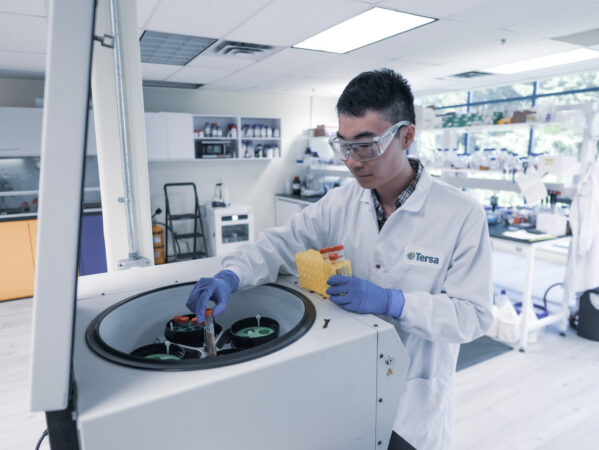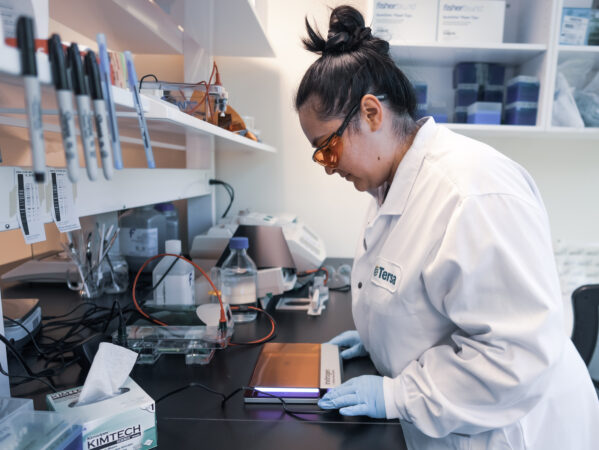
Tersa Earth technology set to improve EV manufacturing supply chain
by Sadi Muktadir

The biotech start-up has heavy implications for the Canadian manufacturing industry, where many carmakers have begun buying mining rights in various regions to secure supplies of lithium in the EV race.

The biotech start-up has heavy implications for the Canadian manufacturing industry, where many carmakers have begun buying mining rights in various regions to secure supplies of lithium in the EV race.
Tersa Earth is trying to make a large splash in the mining industry in Canada.
The cleantech company has developed a patented synthetic biology, to address the mining industry’s toxic waste management issue and extract valuable minerals from tailings dams.
The Tersa Earth leadership team, led by Dr. Vikram Yadav and Stewart Muir, have been promoting the technology and attracting investors in an effort to scale up their technology to commercialization.
Stewart Muir, one of the founders of Tersa Earth, says the company came together when the founding team of scientists realized there was an opportunity to commercialize synthetic biotechnology to reduce emissions on mining sites and extract minerals from toxic waste.
Using a ‘flow-based’ process, acid rock drainage held in tailings ponds, are treated to the point where the liquid can be released back into the environment safely.
Currently, tailings ponds hold toxic waste for decades, such as the Tulsequah Chief Mine in northwestern B.C.
“A stack of flow-based microbial fuel cells targets specific minerals in the acid rock drainage and recover them in the treatment process. Along with this, microbially induced carbonate precipitation discharges in the toxic waste and recycles the tailings pond,” Stewart explains.
When asked what kinds of metals can be targeted, Stewart Muir says that gold, silver, nickel and other materials involved in the electric vehicle supply chain as well. The programs can be tailor-made for a variety of mining operations. The implications are clear.
“While this is being used for the mining sector, right now we have people in the lab right now from the agri-tech sector, from the pharmaceuticals industry, from transportation and cleantech, all realizing the implications of a biofuel cell that can extract minerals and treat water,” Muir says.

Using a ‘flow-based’ process, acid rock drainage held in tailings ponds, are treated to the point where the liquid can be released back into the environment safely.
When asked about the metrics of the mineral extraction and how viable it was, Stewart declined to provide specific numbers, but he did mention other details.
“We are seeking to have three pilot projects active in 2024, including two in mining conditions. We’re working with a design firm right now to develop the equipment for the field. We’ve had an MoU signed with a mining services firm in Mongolia. So the scaling up is happening, even if it’s not overnight,” Stewart Muir says.
The buzz and excitement within mining is there. Industry organizations and government officials are connecting the dots between mining and the electric vehicle supply chain.
At the Pacific Northwest Economic Region’s annual summit in Boise, Id., U.S. legislators and policy analysts had questions for Tersa Earth, armed with funds from the U.S. Infrastructure deal that is making millions available to develop an electric vehicle supply chain and clean up mining sites.
Tersa Earth continues to attend mining exhibitions and trade shows, showcasing their technology in an effort to reach the end of their roadmap of 2025.
Breaking down the roadmap, Stewart Muir says that currently they’re validating systems, components and technologies involved, and will be moving to prototype demonstrations at the end of the year.
The biotech start-up has heavy implications for the Canadian manufacturing industry, where many carmakers have begun buying mining rights in various regions to secure supplies of lithium in the EV race.
Any car manufacturer with a vertical supply chain that can reduce emissions and extract more valuable minerals through synthetic biotechnology could get a huge edge in the competition.
As Canada continues to emphasize its strengths in the EV manufacturing supply chain, Tersa Earth seeks to stand out from the pack.